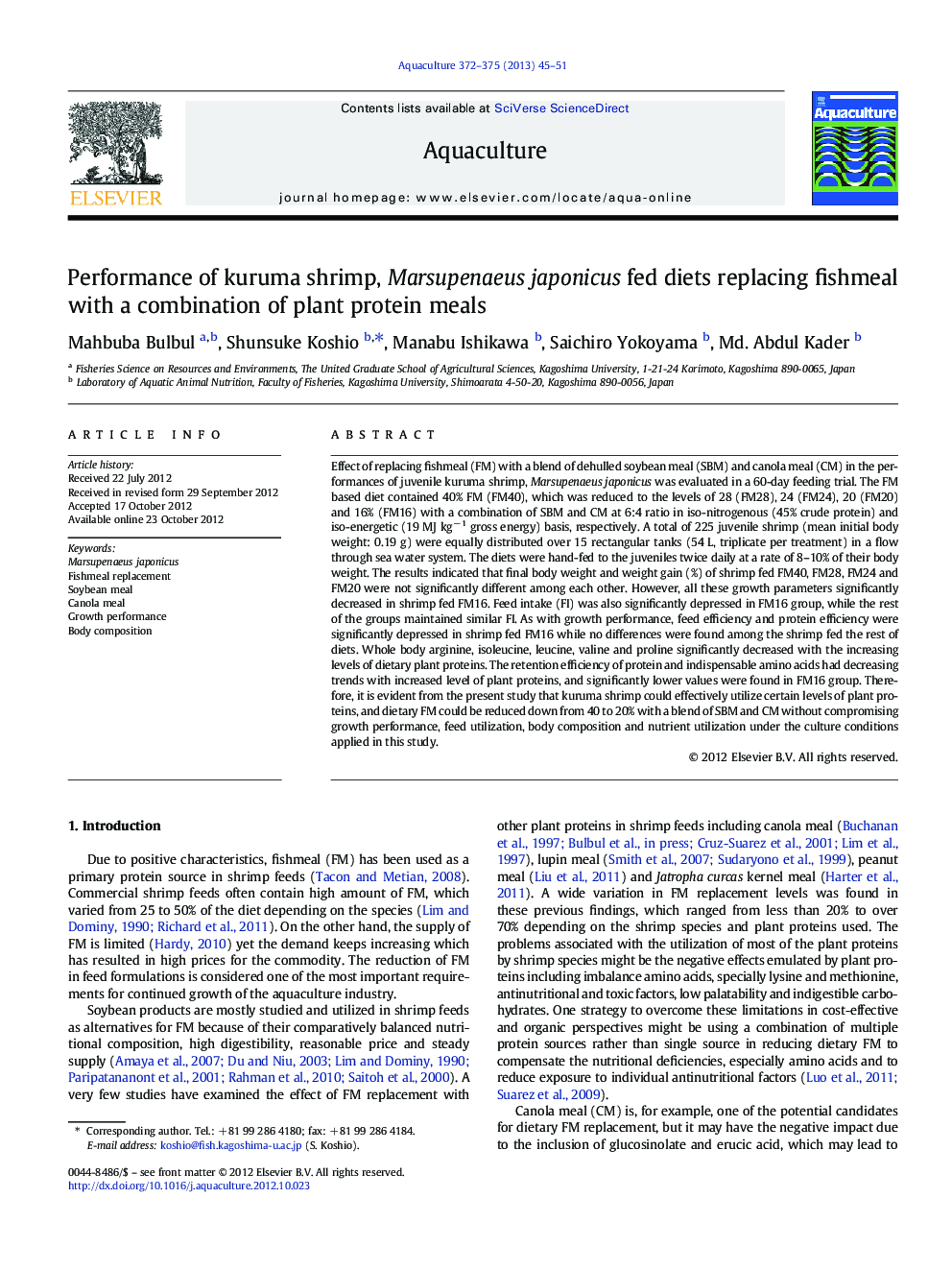| کد مقاله | کد نشریه | سال انتشار | مقاله انگلیسی | نسخه تمام متن |
|---|---|---|---|---|
| 2422279 | 1552880 | 2013 | 7 صفحه PDF | دانلود رایگان |

Effect of replacing fishmeal (FM) with a blend of dehulled soybean meal (SBM) and canola meal (CM) in the performances of juvenile kuruma shrimp, Marsupenaeus japonicus was evaluated in a 60-day feeding trial. The FM based diet contained 40% FM (FM40), which was reduced to the levels of 28 (FM28), 24 (FM24), 20 (FM20) and 16% (FM16) with a combination of SBM and CM at 6:4 ratio in iso-nitrogenous (45% crude protein) and iso-energetic (19 MJ kg− 1 gross energy) basis, respectively. A total of 225 juvenile shrimp (mean initial body weight: 0.19 g) were equally distributed over 15 rectangular tanks (54 L, triplicate per treatment) in a flow through sea water system. The diets were hand-fed to the juveniles twice daily at a rate of 8–10% of their body weight. The results indicated that final body weight and weight gain (%) of shrimp fed FM40, FM28, FM24 and FM20 were not significantly different among each other. However, all these growth parameters significantly decreased in shrimp fed FM16. Feed intake (FI) was also significantly depressed in FM16 group, while the rest of the groups maintained similar FI. As with growth performance, feed efficiency and protein efficiency were significantly depressed in shrimp fed FM16 while no differences were found among the shrimp fed the rest of diets. Whole body arginine, isoleucine, leucine, valine and proline significantly decreased with the increasing levels of dietary plant proteins. The retention efficiency of protein and indispensable amino acids had decreasing trends with increased level of plant proteins, and significantly lower values were found in FM16 group. Therefore, it is evident from the present study that kuruma shrimp could effectively utilize certain levels of plant proteins, and dietary FM could be reduced down from 40 to 20% with a blend of SBM and CM without compromising growth performance, feed utilization, body composition and nutrient utilization under the culture conditions applied in this study.
► A blend of soybean meal and canola meal (6:4) was evaluated in kuruma shrimp diets.
► Plant protein blend could replace 50% fishmeal without reducing shrimp performance.
► Feed intake was positively correlated to shrimp growth.
► Feed intake was significantly decreased in high plant protein group.
► Protein and amino acid retentions were also decreased in high plant protein group.
Journal: Aquaculture - Volumes 372–375, 24 January 2013, Pages 45–51